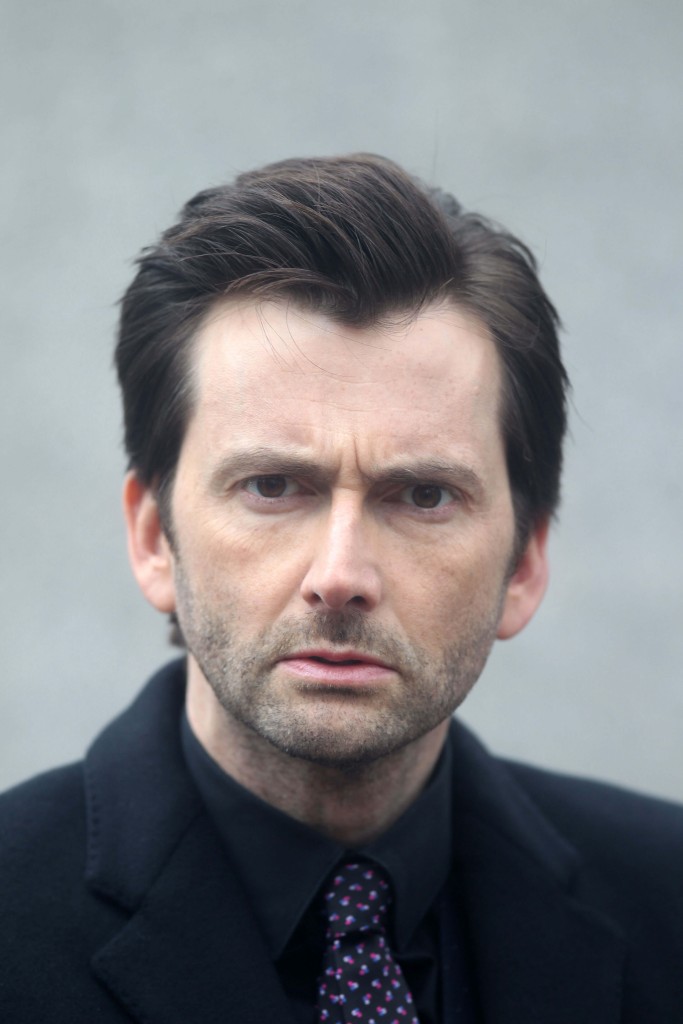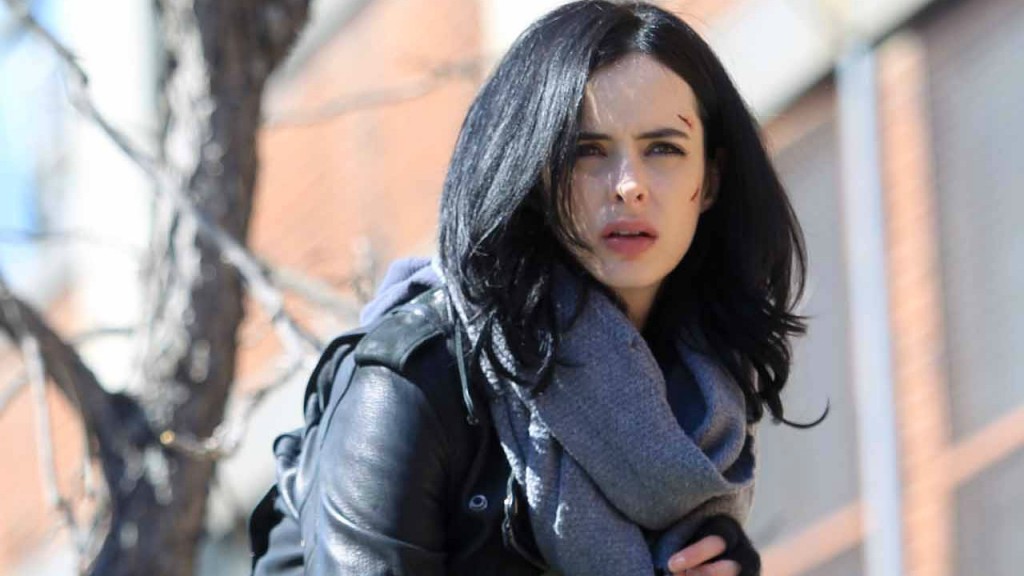In the most un-news-iest news ever, Marvel is straight up crushing it. Since 2008’s Iron Man and through last year’s Paul Rudd-led Ant-Man, Marvel has taken in $9,065,299,688 worldwide. That’s quite a litter of dead presidents. Despite the heaps of cash, and positive Rotten Tomatoes scores and reviews, even the geekiest fanboy can’t deny that Marvel’s recipe for success is formulaic, to say the least, and maybe even a bit stale. A bad baddie comes along with a scary plan slightly more nefarious than the last guy’s, and our superhero baes swoop in for some CGI-heavy battle scenes where no one gets hurt and everyone lives every single time (sorry, Quicksilver. You’re not important enough to count.) Insert Stark one-liners here. Insert Thor’s “I’m not from this world” lingo there. It’s fun, but not quite seminal.
Just when I was feeling a little over-Marveled, Netflix’s Jessica Jones swooped in to shake up the dynamic and bring me back to Avengers-level excitement for what’s to come in the studio’s third phase. The series worked so insanely well, partially thanks to Netflix’s bold investment in original content and its “we DGAF” attitude toward the television industry, at large. In one mere 13-episode series, Marvel has managed to reinvigorate and redefine itself right when its creative cogs needed an energy boost.
Having followed Krysten Ritter since her stint on Veronica Mars and through her widely underappreciated ABC show Don’t Trust the B**** in Apartment 23, her sliding into the role of Jessica Jones was completely seamless. She’s already proven that she can play a tough, confident ball-buster, and now with her new Marvel character, she pounds whiskey and transforms into more of an asshole than her B**** character, Chloe, ever was. But surely there’s more than meets the eye with Jessica – and Ritter shrouds her character and performance in that mystery, making the show that much more compelling. Ritter’s dark and icy demeanor is a perfect match for Jessica’s distrustful pessimism. We can see that she’s hiding something, and it’s her internalized pain that makes her so brute and intimidating on the outside. (Well, that and her superhero strength…)
Jessica feels way more three-dimensional than Marvel’s other heroes. Take Tony Stark or Thor, for example. When compared to Jessica, they’re totally one-note characters. They’re one piece of the larger framework that is The Avengers. The one-liners and witticisms make them feel even more like superhero caricatures from the comics you may have read as a child, rather than a “real” person who happens to have supernatural abilities. Even the tone and grittiness of Jessica Jones gives it a realism that we don’t often see from Marvel Cinematic Universe. It’s that authenticity that makes the show so irresistible. You end up wanting to pick through Jessica’s psyche rather than just poking through your popcorn box looking for the buttery spots.
 Which (Kilgrave!) brings me to (Kilgrave!) the other characters (fucking Kilgrave!!!). Although I was a pretty big fan of James Spader’s Ultron, David Tennant’s turn as Kilgrave is bar none the best villain Marvel has produced on screen. Not only was Kilgrave’s mind-control whoop-dee-do cool AF, but the series produced a villain that had a direct link to Jessica’s past life. Doing this raised the stakes enormously, especially for an alcoholic “superhero” who doesn’t really give a shit otherwise. Therefore, when Jessica is dead set on helping “save” Hope, Kilgrave’s latest girl-toy that he has brought to the brink of destruction, it becomes personal for Jessica. And when we learn about Kilgrave’s past family life and how he got his powers, we feel for him, unknowingly at first, until it smacks us right upside the head. Maybe his fate wasn’t his fault. Maybe he could be reformed. Or maybe he really is just a lunatic psychopath. Jessica Jones built tension nicely over its 13-episode run and Kilgrave was a ginormous part of why this show worked so well. In the Marvel verses, TV and otherwise, the villains are just as important – if not more so – than the heroes.
Which (Kilgrave!) brings me to (Kilgrave!) the other characters (fucking Kilgrave!!!). Although I was a pretty big fan of James Spader’s Ultron, David Tennant’s turn as Kilgrave is bar none the best villain Marvel has produced on screen. Not only was Kilgrave’s mind-control whoop-dee-do cool AF, but the series produced a villain that had a direct link to Jessica’s past life. Doing this raised the stakes enormously, especially for an alcoholic “superhero” who doesn’t really give a shit otherwise. Therefore, when Jessica is dead set on helping “save” Hope, Kilgrave’s latest girl-toy that he has brought to the brink of destruction, it becomes personal for Jessica. And when we learn about Kilgrave’s past family life and how he got his powers, we feel for him, unknowingly at first, until it smacks us right upside the head. Maybe his fate wasn’t his fault. Maybe he could be reformed. Or maybe he really is just a lunatic psychopath. Jessica Jones built tension nicely over its 13-episode run and Kilgrave was a ginormous part of why this show worked so well. In the Marvel verses, TV and otherwise, the villains are just as important – if not more so – than the heroes.
Watching Avengers: Age of Ulton or Iron Man 10 or whatever can be loads of fun. But when shit hits the fan, do we really believe that Tony Stark or Captain America are in any real danger? No. And this safety is what ruins most of the fun. But as it turns out, a partnership with Netflix and Ritter’s gritty booze-fiending PI is exactly what Marvel needed to darken its tone and create a real sense of urgency.
Luke Cage, Iron Fist, The Defenders? Sign me up.



